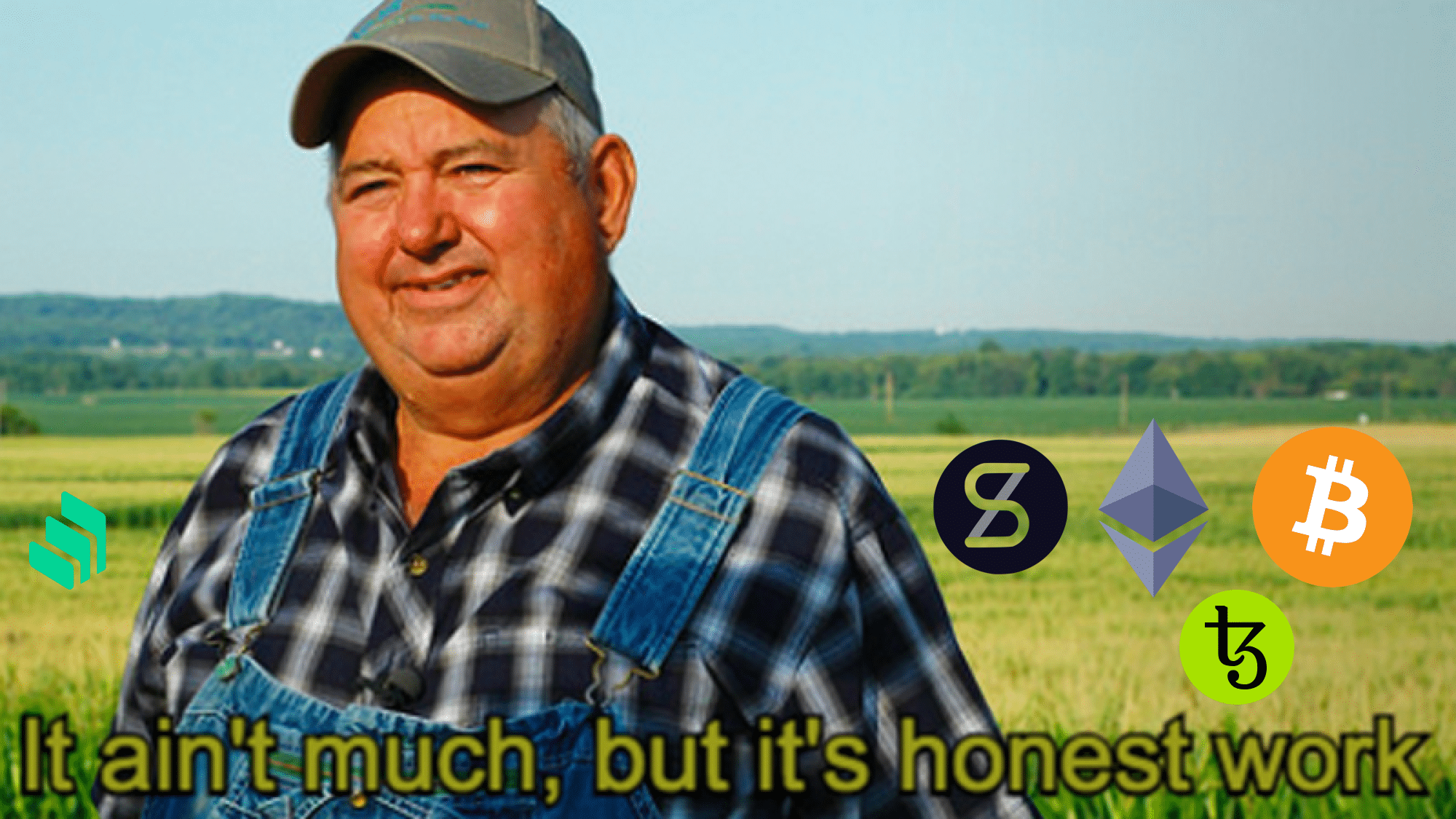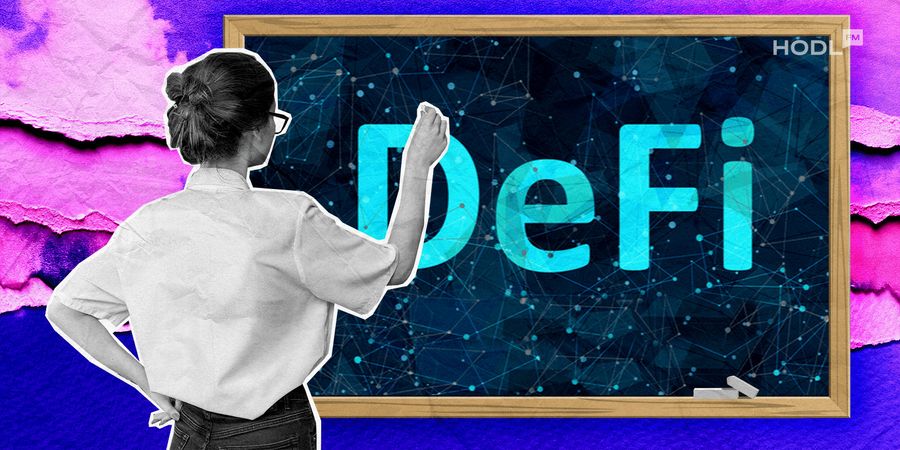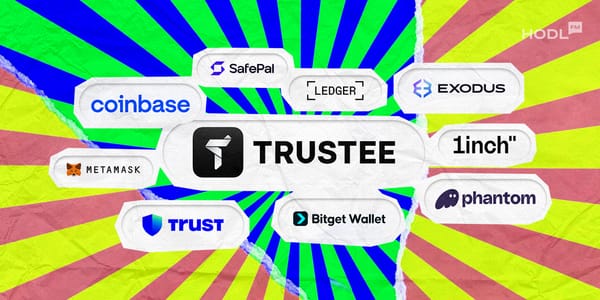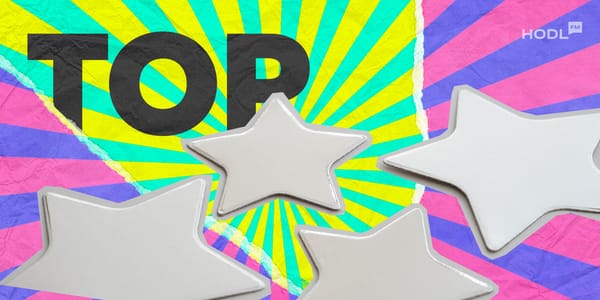For those who have never heard of Decentralized Finance (DeFi), it will be pretty hard to grasp, because DeFi is not one thing and is actually a generalized term for a huge number of things. All these things, though, have something in common – they all involve financial operations using blockchain technology instead of the centralized approach know to us for ages. This means that the role of a central authority in DeFi is replaced by smart contracts, which are the algorithms that manage transactions.
Briefly speaking, the new thing brought about by DeFi is that finance can be made secure without the need for a middleman or a central authority. This potentially saves time and money, and, more importantly, relieves the regulations placed on finance. However, let’s take a look into the 10 most discussed use cases of DeFi, once at a time.
Read more: DeFi Traders vs. Hackers: Lost Battle
WEB3 Wallets
Decentralized wallets (WEB3) are the key to operating on DeFi, and you would need to use them whatever decentralized platform or application (dApp) you’re using.
The key difference between a WEB3 decentralized wallet and any other wallet is that most of the financial platforms outside WEB3 require a registration process and verification of a number of personal details, which is not necessary at all using DeFi. They are fully autonomous. Besides, your account cannot be suspended or blocked by any moderator, and you can transfer the wallet between apps, platforms and devices really easily.
Read more: Coinbase starts ‘Wallet as a Service’
On the other hand, Multi-Signature Wallets are yet another opportunity if you want to share an account among several wallets.
Decentralized Exchanges
Decentralized Exchanges (DEXs) are exchange platforms that use DeFi. This means that the platforms allow their users to trade different cryptocurrencies, but their transactions are verified by smart contracts and are possible to execute quickly and easily due to the liquidity pools.
The main advantage of DEXs over centralized exchange (CEX) platforms is that no KYC verification is required; you can start trading tokens immediately, and you are absolutely secure. Besides, DEX allow for anonymity, which is another step up to protect personal data of all stakeholders and prevent any types of data- or identity theft.
Decentralized Governance
Although we would really like to see DeFi applied to actual governments, this decentralized, or on-chain governance is about Decentralized Autonomous Organizations, or DAOs. Plainly speaking, DAO is an online community of stakeholders related to a particular project that they all have a vote in. The governance is executed based on the weight of each stakeholder’s vote according to the size of their stake, which can be described as Token-Based Voting. The on-chain governance an amazing way to exercise democracy, because the stakeholder that has the most interest has the largest vote and, therefore, if something goes wrong, is the most liable.
So far, on-chain governance is most popular among blockchain communities, which is not surprising. However, this principle can and should be scaled up and used more widely.
Yield Farming Platforms
Yield farming is the term that encompasses all strategies that involve attempts to get passive income through crypto, which includes investing and managing your assets, as long as financial risk management. The main difference between centralized finance (CeFi) and DeFi is that CeFi usually offers a more or less steady annual 10% interest, while DeFi is less predictable but, in the end, may turn out a lot more profitable. Beware, however, that master-level use of yield farming platforms involves a lot of practice and knowledge, so it’s better to start small if you don’t have enough experience.

NFT Marketplaces
Non-fungible tokens (NFTs) are unique digital assets that, unlike crypto currencies, are only issued with the supply limit of one. Once an NFT has been minted (which is the process of creating of NFT by encrypting its ID on blockchain if put simply), you can sell it as a collectible. The price may vary depending on if the NFT you are selling is deemed valuable. Basically, the role of DeFi in this case is to just provide a safe and cheaper space for NFT traders to trade their assets.
Our Reviews on NFT Marketplaces:
- Nifty Gateway – Full NFT Marketplace Overview;
- Magic Eden 2023 – Full overview of Magic Eden NFT Marketplace;
- Blur NFT 2023 – Full overview of Blur NFT Marketplace;
- OpenSea Review 2023 – Full Overview of OpenSea NFT Marketplace;
- Rarible Review – Full Overview of Rarible NFT Marketplace.
Asset Tokenization
Creating tokens from tangible assets is a new idea that DeFi can bring forward. An example of Illiquid Asset Tokenization would be creating a token of a real estate or a car that you own and putting it on a blockchain.
The potential implications are immense. First of all, as every transaction on blockchain is unique and secure, having a token of anything you own physically would be a proof of ownership. Second of all, this would make it a lot easier to trade. Imagine not having to go through the bureaucratic hell trying to sell or buy a house. Let alone if it is in a different country. Asset tokenization is a promise to make it faster and easier and may be one more step toward wider introduction of digital economies.
Monetizing Blockchain Gaming
One of the pioneers in monetizing gaming items would probably be Fortnite, with the skins being the most valuable and traded asset gamers own. DeFi is aimed to made in-game purchase of NFT gaming items possible. In the meantime, all market players are preparing to create more sellable NFTs by expanding the metaverse.
Stablecoins
Stablecoins are the coins that are equivalent, or quasi-equivalent, to the corresponding fiat currency. In essense, they are Derivative Tokens, which means they have no value themselves but still represent something valuable. An example would be the US Dollar and USDT. Using stablecoins in DeFi can offer the benefits of crypto, such as faster and cheaper transactions, in the meantime maintaining the characteristics of fiat, such as low volatility and high predictability. This, in turn, can make large purchases and international transactions easier and more secure.
Insurance and Security
DeFi is generally just as secure as any blockchain platform, given it has finance-based network security, also known as Proof-of-Stake (PoS). However, asset insurance has been on demand with the growing popularity of digital assets, and there are companies ready to provide what people need. For instance, Nexus Mutual, a peer-to-peer DeFi insurance provider based on Ethereum, has grown exponentially for the past two years.
Verification
Blockchain would be extremely useful in identity verification because every block of data is unique and, therefore, cannot be changed without affecting other pieces of data. However, breaches do happen, and most of them concern data or identity theft. The idea behind using DeFi to overcome this issue and provide data verification is that a system that does not have a middleman is a lot more secure.
Conclusion
The key applications of DeFi that are on the rise are all based on the fact that DeFi is a faster and a more reliable system than CeFi due to the omission of the intermediary. This contributes to higher speed of transactions and anonymity, while, at the same time, securer data storage and transfer.
The number of DeFi use cases is growing exponentially, and it is very likely that DeFi will completely replace CeFi in many domains of finance within the next couple of decades, or even years. However, the main obstacle to DeFi becoming the mainstay of finance is the lack of regulation. If this issue is addressed, it is very likely that we are now witnessing a historical period of transition to a brand-new economic paradigm.
Disclaimer: All materials on this site are for informational purposes only. None of the material should be interpreted as investment advice. Please note that despite the nature of much of the material created and hosted on this website, HODL.FM is not a financial reference resource and the opinions of authors and other contributors are their own and should not be taken as financial advice. If you require advice of this sort, HODL.FM strongly recommends contacting a qualified industry professional.








